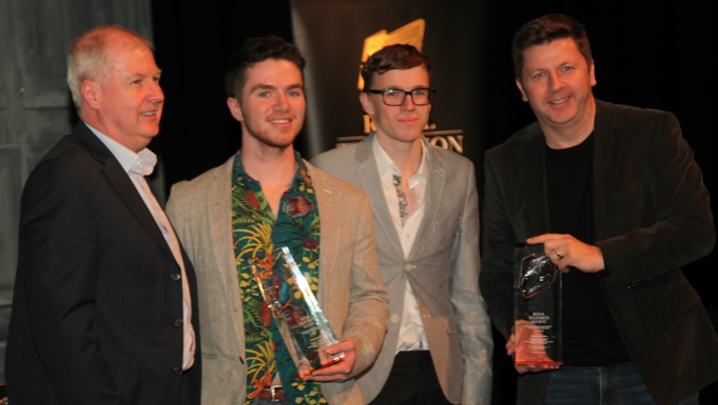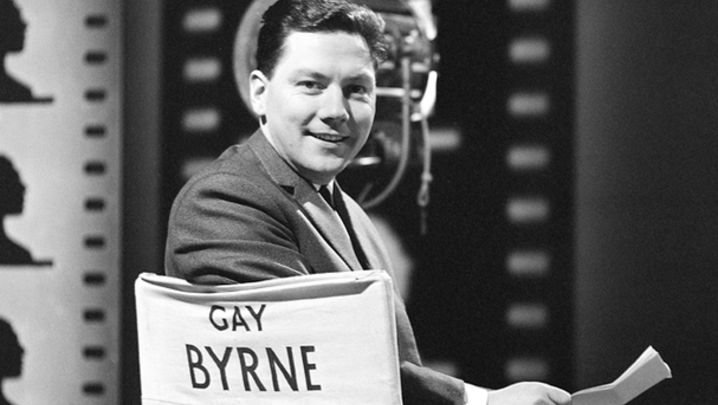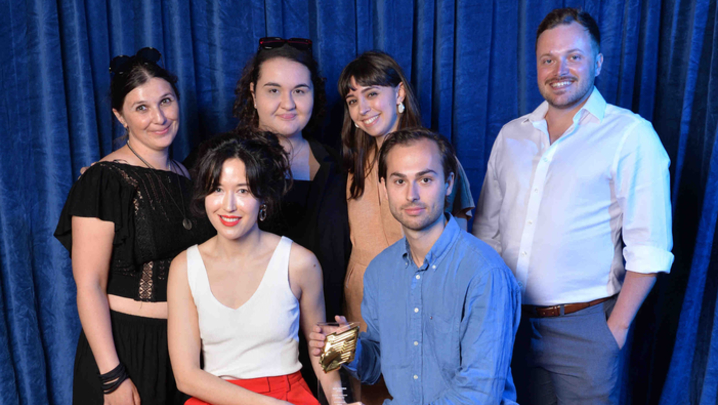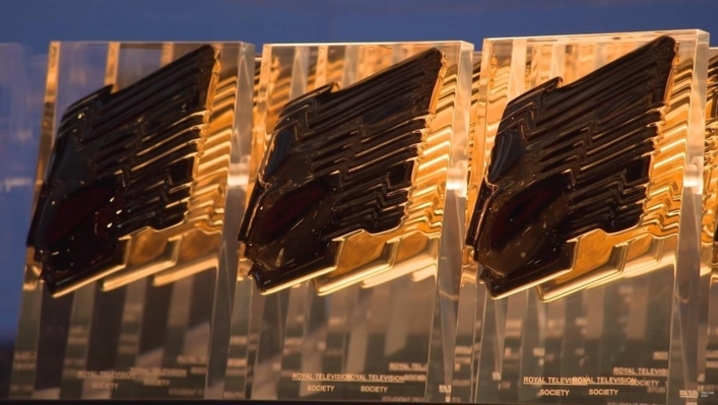Members of RTS Ireland and media production students gathered in RTÉ’s Late Late show
studio this past Tuesday evening for an exciting double header event.
Walking The Labyrinth screening and Q&A with director Jessica Doherty
To begin the evening, Chair of RTS Ireland Agnes Cognan introduced a screening of Jessica Doherty’s short film documentary - Walking the Labyrinth.
The film was made with a crew of fellow students of Dundalk Institute of Technology’s Film & TV Production course, and in 2024 it won the overall Undergraduate Factual trophy in the RTS Student awards in London this past June.
The documentary tells the story of artist Susan Farrelly, who was born in the Bessborough mother and baby home. Bessborough Mother & Baby Home was a home for mothers and infants in Cork which was in operation until 1998.
It was included in an investigation of many mother & baby homes run by Catholic nuns in Ireland, and was exposed as having a history of forced adoptions. Where children born out of wedlock were taken from their mothers and adopted for cash donations.
“What kind of country allows people to be treated like that? That’s just not right.”
- Susan Farrelly, Walking the Labyrinth
Susan Farrelly speaks about her own resilient battle with Irish institutions to uncover the circumstances of her birth and reveal her birth mother. Her words are paired with compelling imagery, including much of Susan’s own art work, to make for a very powerful film.
Susan is an incredibly captivating speaker with a great presence on screen, and the film is beautifully put together by Jessica and her team.
Following the screening, Agnes welcomed RTS committee member and independent film-maker Sharon Lawless (The Killing of Fr. Niall Molloy (2021), Inside the Hospice (2023)) the to stage, where she hosted a discussion on the film with director Jessica Doherty.
Sharon brings up the importance of telling these kinds of stories to Jessica, noting “The government would have been happier if the mother and baby homes had never been uncovered”. But this is not an aspect of society that should be othered.
Jessica says of Walking the Labyrinth “How are we going to tell this story in a refreshing way? That’s where Susan shone. She was never portrayed as a victim.”
She says there were some cuts which included more upsetting moments, but she removed them as didn’t want to make a “sob story”. She wanted to show the resilient side, “Susan says this is my story, I’m proud of it, but it shouldn’t have happened like that”
Sharon asks Jessica what obstacles she faced making the documentary as a graduate film in college.
Jessica insists that the care and love for Susan was the main priority. “As a tough topic, it’s emotionally draining, but the crew put their all into it.”
She also notes they were all balancing final year assignments and this film was time consuming and emotionally draining at times, but it was important to her that she was leaving college with a body of work that represented her and her style.
Sharon says short films are a great format to get your voice heard.
“You have so much latitude to say what you want to say. What direction do you want to go in?”
Jessica says she is still figuring out her own direction and style, but she enjoys the factual medium
“Documentary is like a jigsaw; I have to figure out how to put it together.”
She wants to do another short soon and is inspired by Human issues; women’s issues, Irish history and culture are all near and dear to her heart. She says that once it’s a theme she feels strongly about, she thinks she can make something productive.
Sharon speaks about the RTS Student Awards in London, which took place this past June.
Walking the Labyrinth was the only Irish film present in the student awards in 2024, and tells an Irish story, which Jessica says was a very special feeling.
She mentions that Susan Farrelly was at the awards with her when they won Best Undergraduate Factual film. She said it was validation for both of them and an amazing feeling “Very emotional”.
Jessica says the win has been great for getting in front of people and at opening certain doors. “If you can get your film to a quality that represents you, people will see that.”
Sharon finishes the discussion by asking Jessica what advice she would have for others looking to submit their short films to awards such as the upcoming RTS Ireland Student Awards.
“Stick to what you know, listen to those around you but you don’t have to take on all the advice. But stay true to what you think is right for your piece of work.
“College is a great time to make connections. Figure out who gets you.”
Conversation with David Crean & Gareth McCreavy: How To Get Your Short Film Made
Agnes took to the stage again to introduce the second part of the evening, and our next guests.
Commissioning Editor at Virgin Media - Gareth McCreavy and acting Head of Drama in RTÉ David Crean join Sharon to have a discussion on getting your short film made.
To begin, Sharon mentions how many great schemes are available in Ireland, and notes that it's a great time to want to make short films. She asks Gareth and David about the particular schemes they are involved in.
Gareth discusses Virgin Media Discovers, which started in 2019.
Discovers is a talent development scheme supported by Screen Ireland, focused on diversity, new voices and new stories.
“We’re looking for untold stories, stories through a different lens.”
Discovers doesn't require a script to enter, it can be a concept or idea. Successful applicants are given 40 thousand euro for production and receive support from Virgin Media along the way. The selected projects then premier at Dublin International Film Festival.
David Crean talks about Storyland - an RTÉ initiative which started as a way to showcase new talents on small budgets, but grew as they wanted to increase the impact of the programme.
Storyland wishes to introduce strong new voices, with the aim of getting younger writers on a ramp to work on bigger projects. Each year Storyland puts 8 projects into development, shortlists 5, then picks 3 for production.
“The talent is there, we want to showcase it properly and provide opportunities.”
David commended Jessica on Walking the Labyrinth, and notes that it would have been easy to lean towards the sentimental but notes that she was confident enough to sit back and let the story tell itself.
“If it matters to you it’s going to matter to the audience… Find something that will connect with the audience because there is a broader truth to it.”
Sharon asks Gareth what are the common mistakes or things people should look out for when pitching a script.
Gareth says to make sure you do your research. You need to know you’re not pitching ideas that are already out there. Try to be aware of what the broadcaster wants.
“What will bring in an audience? How are you going to sell your product?”
Sharon queries “What makes a good short? What catches your attention?”
Gareth: “Quality in execution. Sound design. Marketing. Casting. Authenticity. The full package. Believability. If I don’t believe it, I’m switching off.”
Sharon asks what the best way to get attention is for your work.
David answers that you need to be convincing and confident “Be brave. Be convinced by your own story.”
Gareth agrees and says you should be “Unapologetically you.” and you should be entering schemes and getting involved any way you can through shadowing or volunteering work.
The discussion finishes up and thanks Jesscia Doherty, Sharon Lawless, Gareth McCreavy and David Crean for graciously giving their time to speak with everyone.
It was a fantastic evening, ending with tea, coffee and chat afterwards, where the guest speakers and event attendees were free to continue the discussion.
There’s no doubt any aspiring film-makers in the audience went home that night feeling inspired by Jessica’s amazing work, and encouraged by the wise words of David and Gareth.
For more information on Virgin Media Discovers:
https://www.virginmedia.ie/discovers/
To learn more about RTÉ’s Storyland:
https://www.rte.ie/tv/programmes/storyland/









